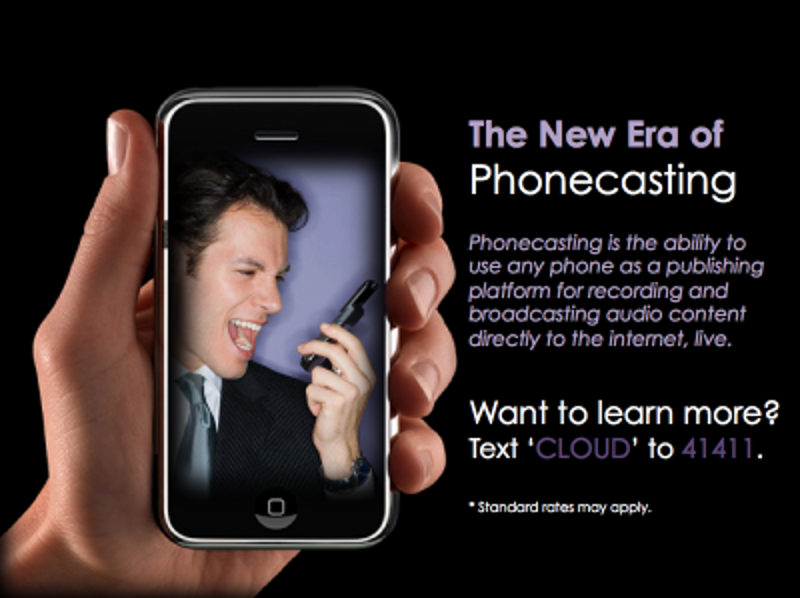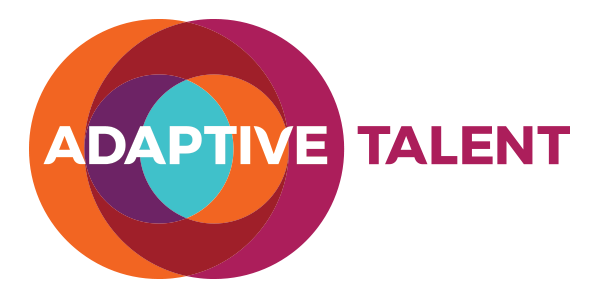 I recently read an intriguing article by Michael Marlatt on phonecasting, an early-stage form of custom, permission-based recruiting leveraging mobile devices. What? Yes, Virginia, there is a Santa Claus and he wants to text you when your dream job is posted.
I recently read an intriguing article by Michael Marlatt on phonecasting, an early-stage form of custom, permission-based recruiting leveraging mobile devices. What? Yes, Virginia, there is a Santa Claus and he wants to text you when your dream job is posted.
My sense is that this is an interesting concept and will evolve into something useful quite soon. Why? Because people are busy and just like Tivo revolutionized the way you experience television (you control the flow of programming so your convenience is more important than the generic schedule), I think phonecasting has the potential to be an interesting source of highly customized value-add content for interested parties to be consumed when and how they want.
This requires first that the employer approaches talent acquisition from a relationship perspective versus a transaction. What’s the difference? Operationally, if the recruiting database is primarily geared around open reqs that force recruiters to match candidates to them, you’ve got yourself a transaction type recruiting situation. Why? The system only “cares” about candidates that are “live” for that role. Otherwise, they sit in limbo, perhaps getting caught in a search string, or placed in your recruiter’s offline folders, but generally, it is a push approach to recruiting (the candidate pushes her resume to the opening).
The better approach is to have a deep CRM-style approach to candidate management that allows the candidate to select either various roles or key words that are of interest. (ie, a pull approach) The recruiter or system then matches opportunities to the candidate and detailed notes are taken on every interaction so that a depth of understanding happens and only the best opportunities are presented. This is most helpful where you’re following highly skilled talent across many years or employers and can yield tremendous quality, and even referrals if people feel that the organization has its act together.
Right now most organizations would have a very hard time presenting custom content to parties, mostly because they don’t create anything beyond their web pages or the occasional email blast. If we are to move to the next level of value-add for talent relationships, then we need to leverage technology to help aggregate and contextualize the organization within a broader picture. For example, I am now following ~60 blogs via my Google Reader (it’s amazing…). If I was on the inside of an organization I would work with my clients to understand the sites they’re following, the schools of interest, and even the places that may seem unrelated to work (entertainment, non-profits, etc).
If my organization has a clear purpose, vision, strategies, objectives, and career paths then I can leverage these to compare and contrast against the larger themes in the market and position us as an employer of choice. The phonecasting could be quite interesting if we republish content of interest to people and if we add unique company-specific media giving people insight into things that are of interest to them. Most companies do this badly because they’re fearful about disclosing secrets but there are plenty of things to talk about that are more interesting than the boring “day in a life” stuff.
Talk about how your company worked together to get the new product launched, things that went wrong, right, and new technologies all using technical terms that would matter to people. Don’t have an HR person in the video – instead, have different video segments focused on roles or topics that people sign up for. If you sponsor events, see if you can’t also record the presentations and make them available on your YouTube channel or Facebook fan page, to name a few. Make sure you have ways for people to click on a custom link that automagically allows them to submit their resume for consideration of that job or to recommend someone. I think this requires you to really think about Facebook Connect or Google’s FriendConnect as viable OpenID solutions so people can leverage their social networks to connect themselves and their friends to opportunities of interest. If you do this, then make your referral bonus easy to administer and track (this is usually painful…but the worst thing is to ask for help and then make it hard to help).
So, my geek-talk summary: Phonecasting is an interesting option if you have a talent acquisition strategy that includes a breadth and depth of relevant content, mass customized and available for consumption across a range of devices to be consumed when it’s convenient. It, or something like it, will become a much bigger element of talent as smart phones become common place and users orient themselves to new ways of connecting with and consuming content. My suggestion is to experiment now since this will take time to figure out.
Author’s 2021 update: This post made me smile upon re-reading it. However, my points on authentic communication and connection with alumni and interested candidates remains true and clearly there are much more powerful tools available.
Photo credit and thanks to Pavan Trikutam.
—
Adaptive Talent is a talent consultancy designed to help organizations achieve amazing results and ongoing adaptability. Founded in 2008 and based in Vancouver, Canada we offer retained search, assessments, total rewards consulting, training, leadership coaching and development programs, and culture & organizational development consulting.

